Adult survivors of institutional child abuse
This page contains information which some individuals may find upsetting. Please take care when accessing this page and seek support before accessing the information if it might be upsetting to you.
Who are adult survivors of institutional child abuse
An adult survivor of child abuse is any person who experienced abuse before they turned 18 years old and is now over 18 years old. The abuse can be of any kind, including emotional, psychological, physical and sexual abuse and neglect. The abuse could have happened regularly or could have happened once. The person who abused you may be someone you know or a stranger.
Institutional child abuse means abuse that happened to a child while living in a residential care setting. A residential care setting includes:
- children’s home
- boarding schools
- foster care
- secure accommodation
- or any similar place where a child is in residential care.
Reporting abuse that happened a long time ago
You can report child abuse even if it has been a long time since it happened. All allegations of institutional child abuse reported to us by Police Scotland will be carefully considered. It does not matter if the abuse happened a long time ago.
Reporting institutional child abuse
If you feel ready and able, you can report the abuse you suffered to Police Scotland. You can do this by phoning 101 or going to your local police station. You do not need to tell the police the details of the abuse straight away. You can discuss your options with a police officer and then decide if you would like to make a formal report by giving the police a statement.
The police will investigate what you tell them. If there is enough evidence once the investigation is complete, they will report a case to us.
More information on how to report a crime to the police and what happens next can be found on Police Scotland’s website.
You will also find information for adult survivors of childhood abuse in this Police Scotland video.
You may want to get support before reporting abuse. We have a list of support organisations who can help.
How COPFS handles reports of child abuse
We have a team of specialist prosecutors who consider reports of institutional child abuse. They ensure the allegations are investigated fully and are committed to bringing offenders to justice. What happens with a case and whether it goes to court will depend on its own facts and circumstances. The prosecutors will consider the law, the evidence, the public interest, and your views in making their decisions on the case.
Support available after a case has been reported
Once a case has been reported to COPFS, someone from our Victim Information and Advice (VIA) service will be in contact with you to introduce themselves. They will support you during your case. They will give you updates on the progress of the case and help you get in touch with organisations that can offer you emotional and practical support.
What happens if a case goes to court
If the case goes to court, you may have to give evidence. We know that being involved in the criminal justice process and giving evidence can be stressful and talking about what happened to you may cause you emotional distress and re-traumatisation. We appreciate how difficult this can be and the impact it might have on your health. If you have to give evidence, our staff will explain the process to you and speak to you about extra support to help you give evidence. We call this extra support “special measures”. You will be able to discuss these special measures and what might help you with the VIA staff.
More information on special measures can be found on our Vulnerable victims and witnesses (special measures) page
VIA will do everything possible to support you throughout this process. COPFS takes your views, health and wellbeing very seriously. We are mindful of the need to incorporate trauma-informed practice into the support that you are offered.
How long will the investigation and prosecution take
We cannot say how long it will take to investigate a case. We also cannot say how long it will take to prosecute the case if it goes to court. Please be aware that the process may take several years. The amount of time it takes depends on factors like the number of allegations in the case.
Before a case is reported to COPFS, the police will be able update you. After your case is reported to COPFS, a dedicated Victim Information and Advice (VIA) Officer will keep you updated about the progress of your case. The VIA officer will discuss with you how often and in what way you would like to be updated.
What happens if an abuser dies
If your abuser has died, or dies during the criminal investigation, it will unfortunately be impossible for COPFS to start or continue a criminal prosecution.
You may still be able to report your experiences to the Scottish Child Abuse Inquiry.
Does a survivor need to hire a solicitor
You do not need a solicitor if you are a survivor of institutional child abuse and your abuser is facing criminal charges. Survivors are not to blame for the abuse they experienced.
You may want to get independent legal advice to guide your through the process. A solicitor can also support you with a related civil claim or Redress application.
Information about the Scottish child Abuse Inquiry
The Scottish Child Abuse Inquiry (SCAI) is investigating the abuse of children in care in Scotland. It is separate from COPFS and is not involved in the criminal prosecution of individuals. The Inquiry wants to find out what abuse has happened and why, where the abuse took place, the effects of abuse on children and their families, and whether organisations responsible for children in care failed in their duties. The Inquiry will report the outcome of its investigations to the Scottish Ministers and make recommendations on changes required to the law, policy and practice for the protection of children in the future.
More information about the Inquiry can be found on the Scottish Child Abuse Inquiry website.
Participating in the Scottish Child Abuse Inquiry
To complete their work, the Inquiry needs to take evidence from a range of people, including people who have experienced child abuse while in care. If you want to support the work of the Inquiry and you feel ready and able to share your experiences of abuse in care, you can contact the witness support team at the Inquiry to find out more.
You do not have to participate in the Inquiry to report child abuse you suffered to the police. It is your decision if you want to be involved in the Inquiry or not.
More information about becoming involved in the Scottish Child Abuse Inquiry and contact details for their witness support team can be found on their website.
Help and support
The following organisations can help and support you, even if you do not want to report the abuse you experienced.
Samaritans

Samaritans provide confidential non-judgemental emotional support, 24 hours a day, for people who are experiencing feelings of distress or despair. Contact Samaritans free on 116 123 or visit their website.
Breathing Space
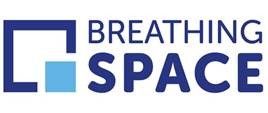
Breathing Space offers free and confidential advice for people experiencing low mood, depression or anxiety. Call Breathing Space free on 0800 83 85 87 or visit their website. Phone lines are open 6pm – 2am Monday to Thursday; and all weekend from 6pm Friday - 6am Monday.
Wellbeing Scotland (formerly In Care Survivors Service Scotland)

Wellbeing Scotland provides trauma counselling and advocacy support for adults who suffered childhood abuse in care. See their website or call them on 0800 121 6027 between 9am – 11pm Monday to Friday.
National Association for People Abused in Childhood (NAPAC)
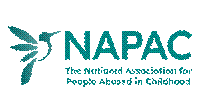
NAPAC offers support to adult survivors of all types of childhood abuse, including physical, sexual, emotional abuse or neglect. See their website or call them on 0808 801 0331 Monday to Thursday 10am – 9pm and Friday 10am – 6pm.
Rape Crisis Scotland
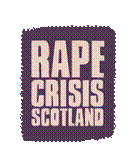
Rape Crisis Scotland supports anyone in Scotland affected by sexual violence at any time in their lives. See their website, call 08088 01 03 02, text 07537 410 027, or email support@rapecrisisscotland.org.uk.
Speak Out Scotland
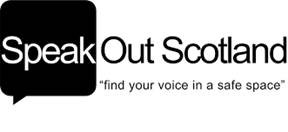
Speak Out Scotland offers a range of services to help male survivors of childhood sexual abuse. See their website or call on 07488 399 917.
We Are With You
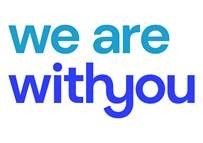
We Are With You offers substance misuse and trauma support simultaneously supporting the recovery and resilience of survivors of childhood abuse. See their website for more information.
Break the Silence

Break the Silence provides a range of holistic support options which empower survivors of sexual abuse to take control of their recovery journey, offering choice and control. See their website for more information.
Health In Mind

Health In Mind provides trauma counselling for those who have experienced abuse in their childhood and is from a minority ethnic community, has a disability (this can be a mental health condition) or lives in a rural or hard to reach area. See their website for more information.
There are many more organisations which offer support to survivors of child abuse which can be found on the Scottish Government website.